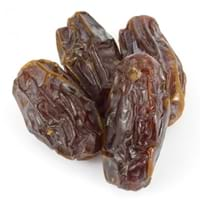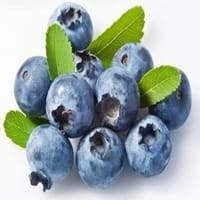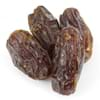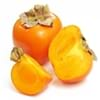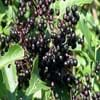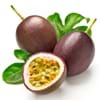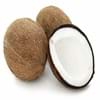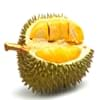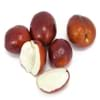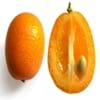Health Benefits
Cancer prevention, Cures gastro-intestinal troubles, Diarrhea treatment, Heart care, Heat stroke treatment, Improves muscular strength, Prevents constipation, Prevents nerve damage, Strengthening of bones
Cancer prevention, Cures gastro-intestinal troubles, Improves night vision, Improves stomach health, Prevents diabetes, Prevents high blood pressure, Reduces blood circulation problems
General Benefits
Boosts immune system, Maintains healthy cholesterol level, Strengthens bones
Fights against infections, Helps in weight loss, Prevents blood clotting in vessels, Treatment of urinary tract infections
Skin Benefits
Anti-aging benefits, Brightens and lightens complexion, Reduces wrinkles, Treatment of skin diseases
Anti-aging benefits, Nourishes skin, Protects against skin damage
Hair Benefits
Prevents hair loss, Promotes longer and healthier hair, Protects hair, Regulates hair growth
Prevents hair loss
Allergy Symptoms
Redness of eyes, Runny nose, Sneezing, Watery eyes
Not Available
Side Effects
Allergic reaction, Diarrhoea, Intestinal gas, Stomach pain, Tooth decay, Weight gain
Decrease in blood sugar levels, Diarrhoea, Dizziness, Headache, Internal bleeding, Stomach pain
Best Time to Eat
Any time except an hour after meal, Don't consume at night and before bed
As a snack in the late afternoon, Don't consume at night and before bed, Eat the fresh ones, avoid mixing with any other foods, don't eat after meal., Morning time (before lunch)
Vitamin B5 (Pantothenic Acid)
Vitamin C (Ascorbic Acid)
Vitamin K (Phyllochinone)
Calories in Fresh Fruit with Peel
Calories in Fresh Fruit without Peel
Not Available
Not Available
Calories in Frozen Form
Not Available
Not Available
Calories in Dried Form
Not Available
Calories in Canned Form
Not Available
Not Available
Season
Spring, Summer
Summer
Varieties
Barhi, Dayri, Deglet Noor, Halawy, Khadrawy, Medjool, Thoory and Zahidi
Dwarf bilberry, Piper, bog blueberry, Northern bilberry, Mountain bilberry and Oval-leaved bilberry
Color
Black, Brown, Red, Yellow
Dark purple
Inside Color
Brown
Light Green
Soil Type
Clay, Loam, Sand
Moist, Well-aerated
Climatic Conditions
Hot, Warm
Cold
Facts about
- Date is known as the tree of life in Middle east.
- Date palms cover 3% of the earth's total farmlands.
- Scholars believe that date (and not apple) was the real fruit mentioned in the Bible's Garden of Eden.
- Bilberries are used in manufacturing of alcoholic drinks.
- They are used to improve aromas of sorbets.
- The green extract of it's leaves is used in textile industry as natural dye.
Spirits
Not Available
Yes
Cocktails
Not Available
Yes
Other Countries
Algeria, Iraq, Oman, Pakistan, South Africa, United Arab Emirates
Denmark, Finland, Iceland, Sweden
Top Importer
India
United States of America
Top Exporter
United Arab Emirates
Chile
Botanical Name
Phoenix Dactylifera
Vaccinium myrtillus
Synonym
Not Available
blaeberry, whinberry, European blueberry, whortleberry
Subkingdom
Tracheobionta
Tracheobionta
Division
Magnoliophyta
Magnoliophyta
Class
Liliopsida
Magnoliopsida
Subclass
Arecidae
Dillenhidae
Family
Arecaceae
Ericaceae
Species
P. dactylifera
Vaccinium myrtillus
Difference Between Date and Bilberry
We might think that Date and Bilberry are similar with respect to nutritional value and health benefits. But the nutrient content of both fruits is different. Date and Bilberry Facts such as their taste, shape, color, and size are also distinct. The difference between Date and Bilberry is explained here.
The amount of calories in 100 gm of fresh Date and Bilberry with peel is 282.00 kcal and 44.00 kcal and the amount of calories without peel is Not Available and Not Available respectively. Thus, Date and Bilberry belong to High Calorie Fruits and Low Calorie Fruits category.These fruits might or might not differ with respect to their scientific classification. The order of Date and Bilberry is Arecales and Ericales respectively. Date belongs to Arecaceae family and Bilberry belongs to Ericaceae family. Date belongs to Phoenix genus of P. dactylifera species and Bilberry belongs to Vaccinium genus of Vaccinium myrtillus species. Beings plants, both fruits belong to Plantae Kingdom.
